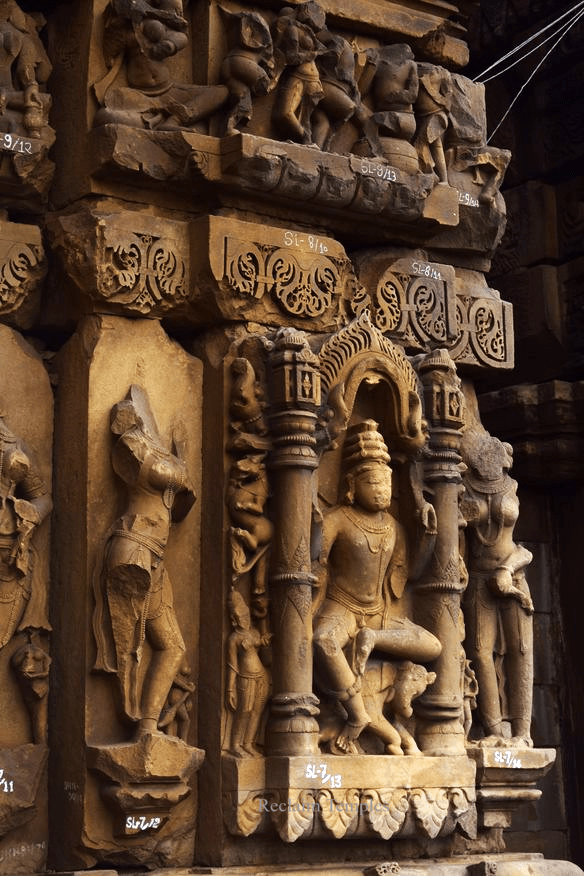List of Masjids in Punjab which was built by destroying Hindu temples
LIST OF MOSQUES IN PUNJAB WHICH WERE BUILT AFTER DEMOLISHING THE HINDU TEMPLES
We give below, state-wise and district-wise, the particulars of Muslim monuments which stand on the sites and/or have been built with the materials of Hindu temples, and which we wish to recall as witnesses to the role of Islam as a religion and the character of Muslim rule in medieval India. The list is the result of a preliminary survey. Many more Muslim monuments await examination. Local traditions which have so far been ignored or neglected have to be tapped on a large scale.
We have tried our best to be exact in respect of locations, names and dates of the monuments mentioned. Even so, some mistakes and confusions may have remained. It is not unoften that different sources provide different dates and names for the same monument. Many Muslim saints are known by several names, which create confusion in identifying their mazars or dargahs. Some districts have been renamed or newly, created and a place which was earlier under one district may have been included in another. We shall be grateful to readers who point out these mistakes so that they can be corrected in our major study. This is only a brief summary.
Sita Ram Goel
It should be kept in mind that the list below doesn’t include all the temples destroyed by Muslims and converted to mosques. The below is the list of mosques and Dargahs where evidences exists of having been made after destroying the temples at these locations. In many mosques, Muslim rulers were able to eradicate all signs of temples, and hence not given in below list.
Anyone is free to visit the below list of mosques and see the remnants and materials of Hindu temples used in their construction. Archaeological Survey of India should conduct an excavation of below mosques to find out more about the ancient temples in these locations and possible mass graves around the mosque sites.
I. BHATINDA DISTRICT
1. Mazar of Baba Haji Rattan (1593). Converted temple.
II. GURDASPUR DISTRICT
Batala
2. Jami Masjid. Temple site.
III. JALANDHAR DISTRICT
Sultanpur
3. Badshahi Sarai. Built on the site of a Buddhist Vihara.
IV. LUDHIANA DISTRICT
4. Dargah and Masjid of Ali Sarmast (1570). Temple site.
5. Qazi-ki-Masjid (1517). Temple site.
V. PATIALA DISTRICT
Bahadurgarh
6. Masjid in the Fort (1666). Temple site.
Bawal
7. Masjid (1560). Temple site.
Samana
8. Sayyidon-ki-Masjid (1495). Temple site.
9. Jami Masjid (1614-15). Temple site.
10. Masjid near Imambara (1637). Temple site.
11. Pirzada-ki-Masjid (1647). Temple site.
VI. ROPAR DISTRICT
12. Jami Masjid. Temple site.
VII. SANGRUR DISTRICT
Sunam
13. Qadimi Masjid (1414). Temple site.
14. Ganj-i-Shahidan. Temple site.
EVIDENCE IS AVAILABLE THAT IN PUNJAB THE ABOVE MENTIONED MOSQUES AND DARGAHS WERE CONSTRUCTED BY DESTROYING HINDU TEMPLES. BUT IN MANY OTHER CASES MUSLIMS SUCCEEDED IN REMOVING ALL TRACES OF TEMPLES FROM THE MOSQUES. IN SUCH CASES ONLY AN EXCAVATION BY ASI WILL REVEAL THE DESTROYED TEMPLES.
WHILE MUSLIMS ASK FOR REBUILDING THE ILLEGAL MOSQUE IN AYODHYA, WHY SHOULD NOT HINDUS DEMAND THE RECONSTRUCTION OF THE DESTROYED TEMPLES IN INDIA?

